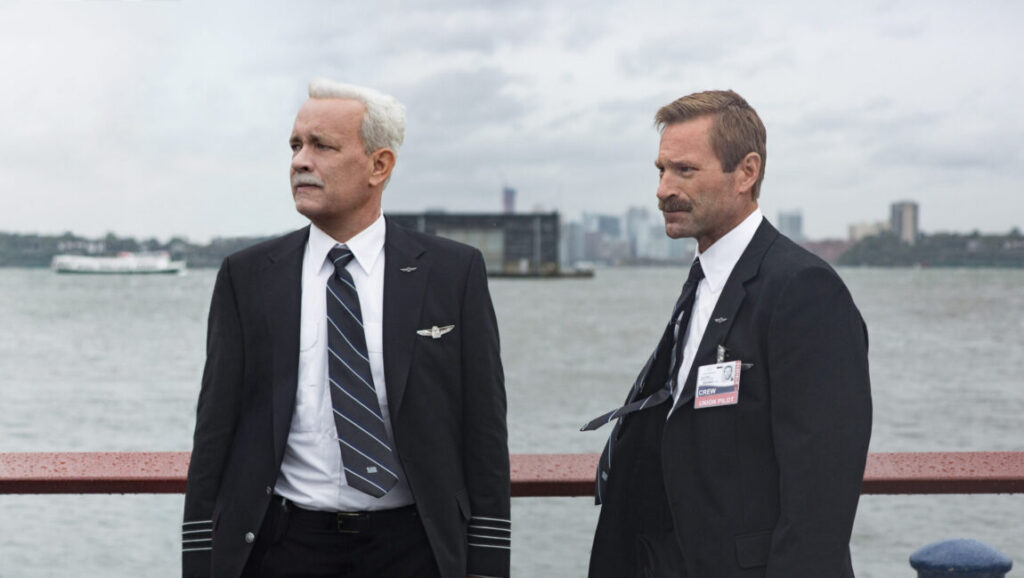Late in Eastwood’s chronicle of Captain Chesley “Sully” Sullenberger’s emergency water landing of US Air 1549 (dubbed the “Miracle on the Hudson”)—and the investigation that follows—Sully (a white-haired Tom Hanks) turns to his co-pilot (Aaron Eckhart), saying, “We did our job.” That pretty much sums up this simple story of pragmatic, unassuming, collective heroism and cool thinking in a state of crisis. Sully manages to save every passenger on board and is hailed as a hero by the media. He’s quick to honor the actions of his crew and a host of first responders, and he shuns the spotlight not merely because he’s a humble man, but because he’s plagued with doubt after NTSB investigators claim he could have made a safe landing at LaGuardia instead of planting his aircraft in the river.
The feel of an old-school, almost Hawksian ode to calm professionalism.
The portrayal here of Sully’s pure, hard-earned confidence is contrasted with the scurrilous second-guessing of those without the proper disposition and experience. Hanks turns in another in a recent line of sturdy performances of ordinary men charged with extraordinary tasks (cf. Bridge of Spies), but the thread of exceptional skill shadowed by personal doubt might also function as a response of sorts to the scorn heaped on Eastwood for American Sniper, another story of a man defined by actions few have the capacity to fully understand (although this is certainly far less politically-freighted). Renowned (and just as frequently criticized) for his unfussy form, Eastwood filmed the majority of Sully in full IMAX, with an aspect ratio close to classic Academy 1.33, enhancing (deliberately or not) the feel of an old-school, almost Hawksian ode to calm professionalism that could even, if you squint right, double as a mission statement for Eastwood’s own career.


Comments are closed.